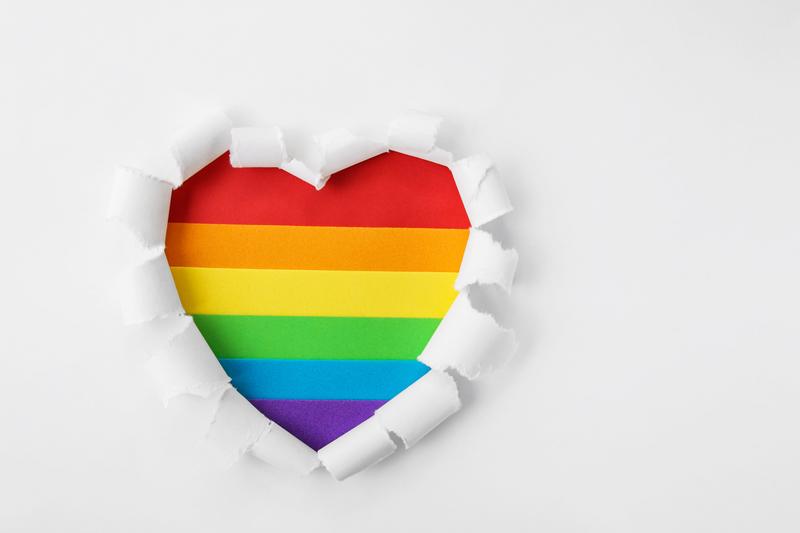If you’re looking for ways to better support your lesbian, gay, bisexual, or transgender peers, here are a few ways to begin - as told by a member of the community.
Listen
All of the items on this list are important, and no complex issue can be summarized in just one word. However, one of the easiest and most critical things you can do to be an ally to the community is listening to your LGBTQ+ peers. There is no plausible way for me to talk about each and every issue that faces the community. I cannot speak of the best things to do or say in every given scenario. There are simply too many.However, the one thing you can do in every scenario is to listen to the LGBTQ+ people in your life. No amount of observation or study can compare to the lived experiences of these people. If you are part of a conversation or situation in which members of the community are affected, make sure to listen to them first and speak second. Many allies of the community accidentally continue to harbor stereotypes or anti-LGBT sentiments that they have absorbed from their society. The first step to unpacking these is listening.Speak
Arguably, the most important trait of an ally after the ability to listen is the ability to speak. As said by human rights activist Desmond Tutu, “If you are neutral in situations of injustice, you have chosen the side of the oppressor.” There is no more accessible place to fight oppression than in our own lives - in our schools, homes, and communities.While it may seem daunting at first to speak up against people you’ve known your entire life, your words can make a difference. Frankly, a refusal to stand up when you hear things you know are offensive or oppressive to the community is a sign that you may not be as much of an ally as you think you are. If this is you, don’t worry! Just start speaking up when you hear these things in your life - even if they’re coming from a relative, teacher, or friend.Support LGBT+ Spaces in University
Many universities offer amazing programs and support for LGBTQ students! Try to engage with these programs and support the events they may create for the campus to enjoy.Additionally, you can consider taking a course about LGBT history or other topics related to sexuality and gender identity. Moving to a new place can be intimidating regardless of your identity, but it can be even more so for LGBT people who will need to meet new people and navigate coming out and safety. Furthermore, you can talk to your queer and transgender peers about applying for scholarships designed specifically for them. Affording college is a challenge for many, but fortunately, there are scholarships to help support LGBT students!Use Inclusive Language
Demonstrate your allyship by changing the way you speak. Rather than calling your partner your girlfriend or boyfriend, consider calling them your partner! As of now, LGB people may still out themselves by referring to their same-sex partner as their “partner” rather than their girlfriend or boyfriend. More heterosexual people using this term will help to normalize it and allow people in same-sex relationships to use it without fearing for their safety. Additionally, introduce yourself using your pronouns. Many LGBT+ people state their pronouns by necessity or for fear of being misgendered. Unfortunately, being outed as trans is still unsafe. Telling people your pronouns and opening the conversation will help to remove the assumption that all people who state their pronouns are transgender and will protect the trans community from violence.Donate to LGBT+ Charities or People
Discrimination can cause LGBT people to find themselves in financially unstable situations, as many states in the US do not have adequate laws to prevent discrimination of housing or public accommodations based on sexual orientation or gender identity. So, why not consider donating to a charity that supports the community? Additionally, you could donate to a gofundme page that may allow a transgender person to have life-changing, gender-affirming surgery. Fret not if you can’t afford to donate, but if you can it’s always a great way to support your trans and queer peers!Show up to Queer Events
Events for the LGBT+ community are held year-round, and with options ranging from pride parades to protests and everything in between, there are several ways for you to participate! It is always reassuring to see your straight and cisgender friends supporting your LGBT+ events, and there will always be a space for them at these events! Ask your queer friends if you can attend one with them, but make sure to learn about their etiquette and de-center yourself in these experiences! Getting to experience the culture of these communities first-hand is an awesome way to further understand them. So show up, even if you’re intimidated at first. (I promise it’s not as scary as it may seem.)Practice These Year-Round - Not Just During Pride Month
Pride month can be a magical time in the community, with more parades and celebrations than are usually present. But allyship and pride aren’t trendy just once a year. Being an ally is a full-time commitment to real people who face real issues. Actually, the commercialization of queer people and their interests during the month of June can negatively impact the community. Put simply, allyship that is withdrawn when it is no longer convenient is performative and, if anything, harmful to the community.
